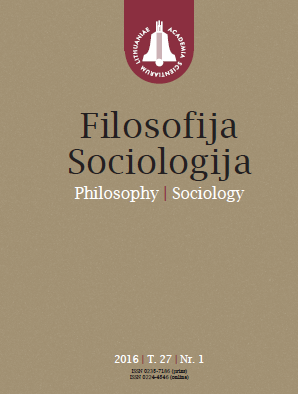Intercultural origin and philosophical background of Argentinian Tango
Intercultural origin and philosophical background of Argentinian Tango
Author(s): Agnieška JuzefovičSubject(s): Philosophy, Theatre, Dance, Performing Arts, Social Philosophy, Sociology, Sociology of Culture, Sociology of Art
Published by: Lietuvos mokslų akademijos leidykla
Keywords: entertainment; social dances; tango; Buenos Aires; intercultural influences; philosophy of dialogue; sharing togetherness
Summary/Abstract: The paper offers a philosophical and anthropological investigation of the industry of entertainment, which during recent decades has faced the process of rapid development and transformations. The author argues that various intercultural influences have played an essential role in the process of its formation, development and spreading. Tango developed as a product of the influences of Afro-Argentinians, local nomadic cowboys (gauchos) and European immigrants who flooded Argentina at the end of XIX century. Therefore the philosophical and cultural background of this dance is profoundly multicultural. Cultural interactions become even more intensive after tango went beyond Argentina and conquered Europe and the USA. Recently, in academic discourses, there coexist two different views towards the phenomenon of tango – local and global: traditional Argentinian “el tango porteño” is replaced by “el tango nomade”. Both the localized and globalized aspects of tango dance contribute to the result that it became so popular and dynamic field of the industry of entertainment. Phenomenology and philosophy of the dialogue helps to unveil essential, philosophical aspects of communication performed through tango dance. The German philosophers M. Heidegger and H. Arendt and the Austrian philosopher of Jewish origin M. Buber help to analyze tango from the perspectives of phenomenology and philosophy of the dialogue. Such a philosophical approach reveals a dialogical nature of this dance, enables to regard it as a silent dialogue, authentic and deep human relationships .
Journal: Filosofija. Sociologija
- Issue Year: 2016
- Issue No: 1
- Page Range: 51-60
- Page Count: 10
- Language: English

